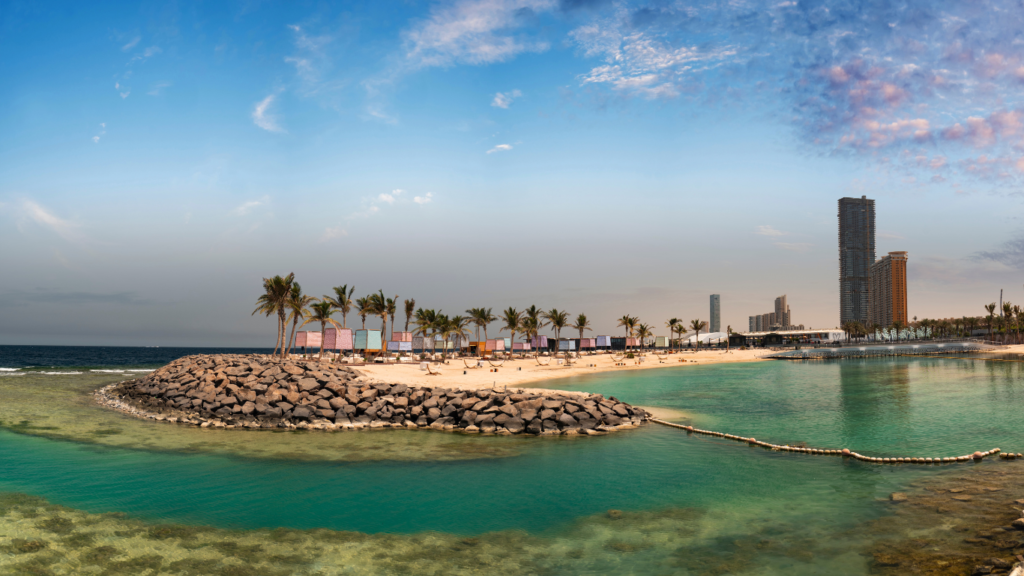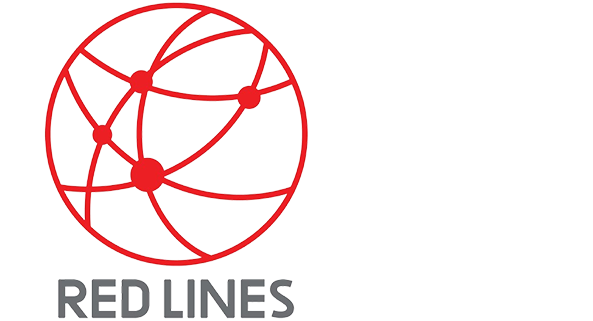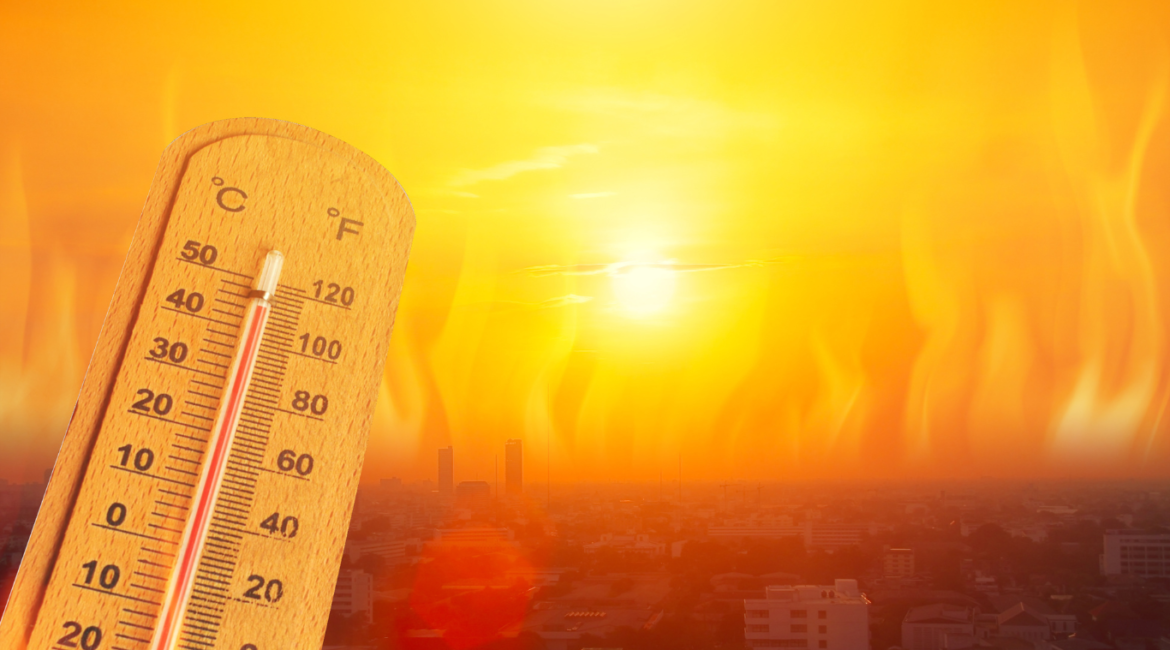In Saudi Arabia’s major cities—Riyadh, Dammam, and Jeddah—seasonal temperature variations significantly impact urban planning and infrastructure development. With extreme heat during the summer and more moderate conditions in the winter, understanding how temperatures change throughout the year is crucial for creating sustainable, comfortable, and resilient urban environments. This article will explore how seasonal temperature changes affect city planning and infrastructure in Riyadh, Dammam, and Jeddah, and highlight how our temperature mapping services contribute to smarter urban development.

Understanding Seasonal Temperature Variations in Saudi Arabia’s Major Cities
Each of Saudi Arabia’s major cities experiences unique seasonal temperature patterns due to their geographical locations and environmental conditions:
- Riyadh: As the capital city located in the central part of Saudi Arabia, Riyadh experiences hot desert conditions. Summers are extremely hot, with temperatures often exceeding 45°C (113°F). Winters, while milder, can still be warm during the day but cooler at night. These significant temperature variations between seasons require careful urban planning to ensure buildings and infrastructure can withstand both extreme heat and cooler conditions.
- Dammam: Located on the eastern coast along the Arabian Gulf, Dammam faces a combination of hot, humid summers and mild winters. The proximity to the sea means that the city experiences high humidity levels, especially in the summer months, which can exacerbate the heat. Winters are more comfortable, with moderate temperatures and less humidity. These conditions require unique planning solutions to manage both the heat and humidity effectively.
- Jeddah: Situated on the western coast along the Red Sea, Jeddah experiences similar hot, humid summers and mild winters. However, the city’s coastal location provides some natural cooling due to sea breezes, which can help moderate temperatures. Despite this, the city still faces extreme heat during the summer months, which necessitates careful consideration in urban planning and infrastructure development.
Impact of Seasonal Temperature Variations on Urban Planning
Seasonal temperature changes in Riyadh, Dammam, and Jeddah have a significant impact on urban planning and infrastructure development. Here are some of the key considerations:
- Building Design and Materials: Buildings in these cities must be designed to withstand extreme heat during the summer months while remaining comfortable during the cooler winter months. This often involves using materials with high thermal resistance, reflective surfaces to reduce heat absorption, and insulation to maintain indoor temperatures. Additionally, architects and urban planners need to consider shading, natural ventilation, and the orientation of buildings to minimize heat gain.
- Cooling Infrastructure: In cities like Riyadh, Dammam, and Jeddah, cooling infrastructure is essential to manage the extreme heat. This includes air conditioning systems, cooling centers, and public spaces designed to provide shade and reduce temperatures. Urban planners must ensure that there is sufficient energy capacity to meet the increased demand for cooling during the summer months, while also considering sustainable solutions such as solar energy and energy-efficient cooling technologies.
- Water Management: The hot and dry conditions in Riyadh and the hot and humid conditions in Dammam and Jeddah require efficient water management strategies. During the summer months, water usage for cooling and irrigation increases, which can strain local water resources. Urban planners must consider sustainable water management practices, such as using treated wastewater for irrigation and implementing water-saving technologies to reduce consumption.
- Green Spaces and Urban Forestry: Green spaces and urban forestry play a crucial role in mitigating the effects of extreme heat. Trees and vegetation provide shade, reduce the urban heat island effect, and improve air quality. Urban planners in Riyadh, Dammam, and Jeddah need to incorporate more green spaces into city designs to help cool the environment and provide comfortable outdoor areas for residents.
- Transportation and Infrastructure: Seasonal temperature variations also impact transportation and infrastructure planning. Roads, bridges, and other infrastructure must be built to withstand extreme heat, which can cause materials like asphalt to expand and degrade more quickly. Additionally, public transportation systems must be designed to provide comfortable conditions for passengers during the hot summer months, such as air-conditioned buses and shelters.
Our Role in Temperature Mapping Services
At our company, we provide advanced temperature mapping services to help cities like Riyadh, Dammam, and Jeddah better understand seasonal temperature variations and their impact on urban planning. By using cutting-edge technology such as satellite imaging, drones, and sensor networks, we create detailed temperature maps that show how temperatures vary across different areas of a city throughout the year.
Our temperature mapping services provide valuable data that city planners and developers can use to make informed decisions about building designs, cooling infrastructure, green spaces, and more. By understanding the unique temperature patterns in Riyadh, Dammam, and Jeddah, we can help create more resilient and comfortable urban environments for residents.
Conclusion
Seasonal temperature variations play a crucial role in shaping urban planning and infrastructure development in Saudi Arabia’s major cities. By understanding how temperatures change throughout the year in Riyadh, Dammam, and Jeddah, city planners can develop strategies to manage extreme heat, improve sustainability, and enhance the quality of life for residents. Our temperature mapping services provide the essential data and insights needed to support these efforts and build better, more resilient cities for the future.
you can get more information on our site: Redlines.com





